Kanter Award Winners

2023: Anette Fasang and Silke Aisenbrey
Fasang, A. E., & Aisenbrey, S. (2022). Uncovering social stratification: Intersectional inequalities in work and family life courses by gender and race. Social Forces, 101(2), 575-605. https://doi.org/10.1093/sf/soab151
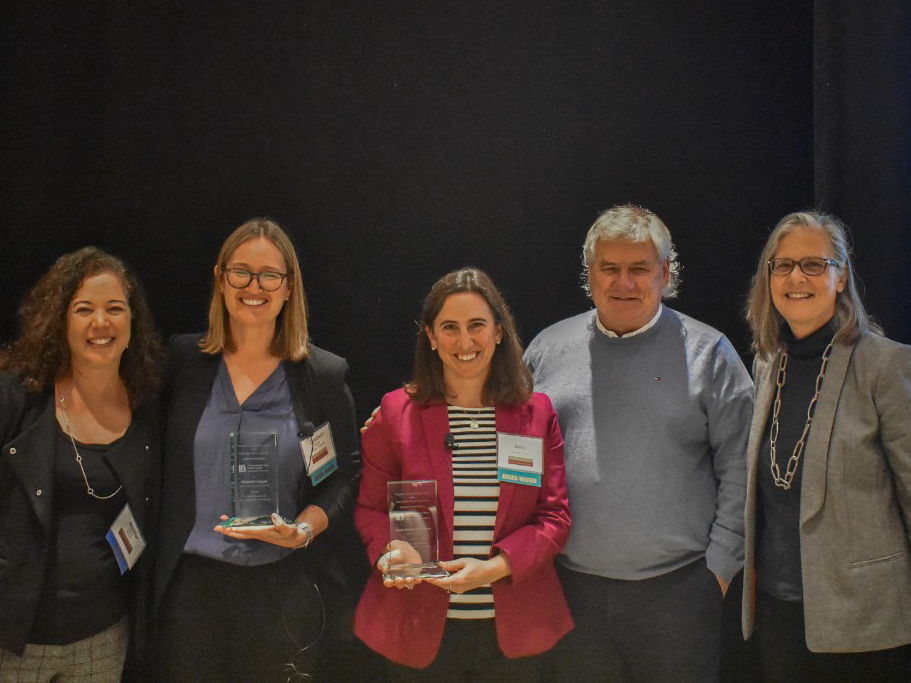
2022: Elizabeth Ananat and Anna Gassman-Pines
Ananat, E. O., & Gassman‐Pines, A. Work Schedule Unpredictability: Daily Occurrence and Effects on Working Parents’ Well‐Being. Journal of Marriage and Family, 83(1), 10-26. https://doi.org/10.1111/jomf.12696
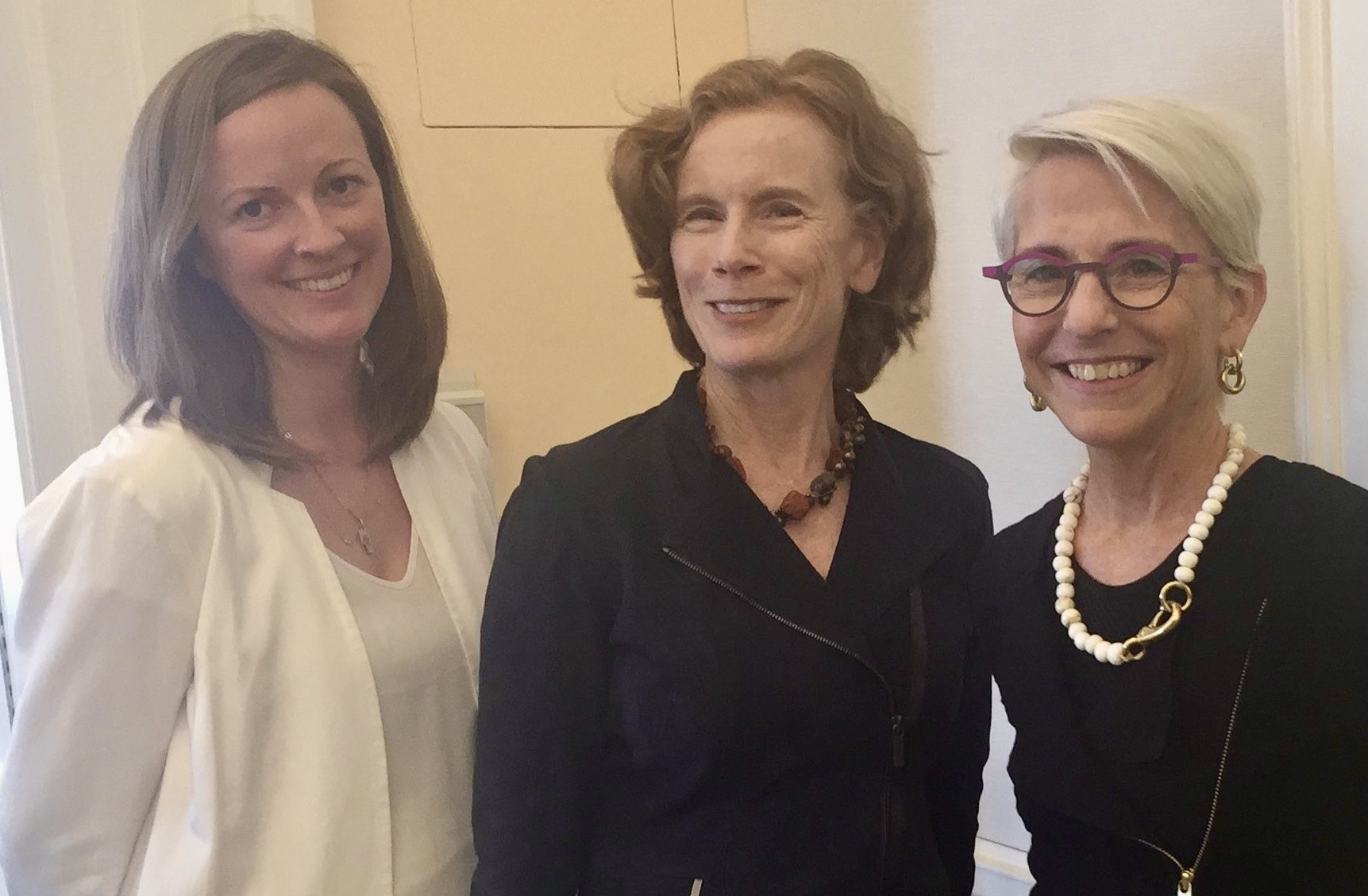
2021: Irene Padavic, Robin Ely, and Erin M. Reid
Padavic, I., Ely, R. J., & Reid, E. M. (2020). Explaining the persistence of gender inequality: The work–family narrative as a social defense against the 24/7 work culture. Administrative Science Quarterly, 65(1), 61-111. https://doi.org/10.1177/0001839219832310

2020: Hannah Riley Bowles, Bobbi Thomason, and Julia B. Bear
Bowles, H. R., Thomason, B., & Bear, J. B. (2019). Reconceptualizing what and how women negotiate for career advancement. Academy of Management Journal, 62(6), 1645-1671. https://doi.org/10.5465/amj.2017.1497
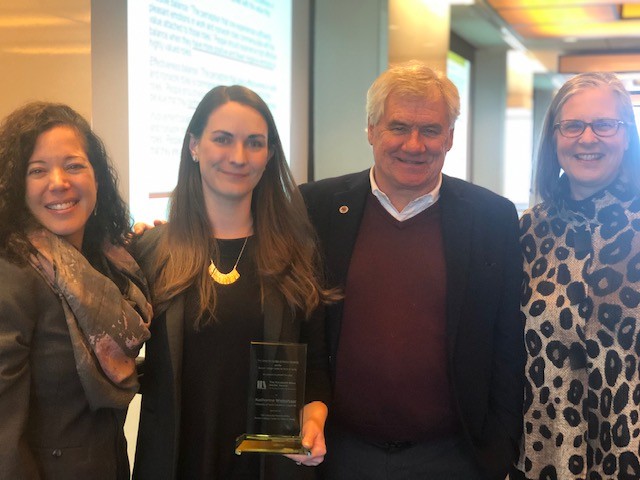
2019: Kate Weisshaar
Weisshaar, K. (2018). From opt out to blocked out: The challenges for labor market re-entry after family-related employment lapses. American Sociological Review, 83(1), 34-60. https://doi.org/10.1177/0003122417752355
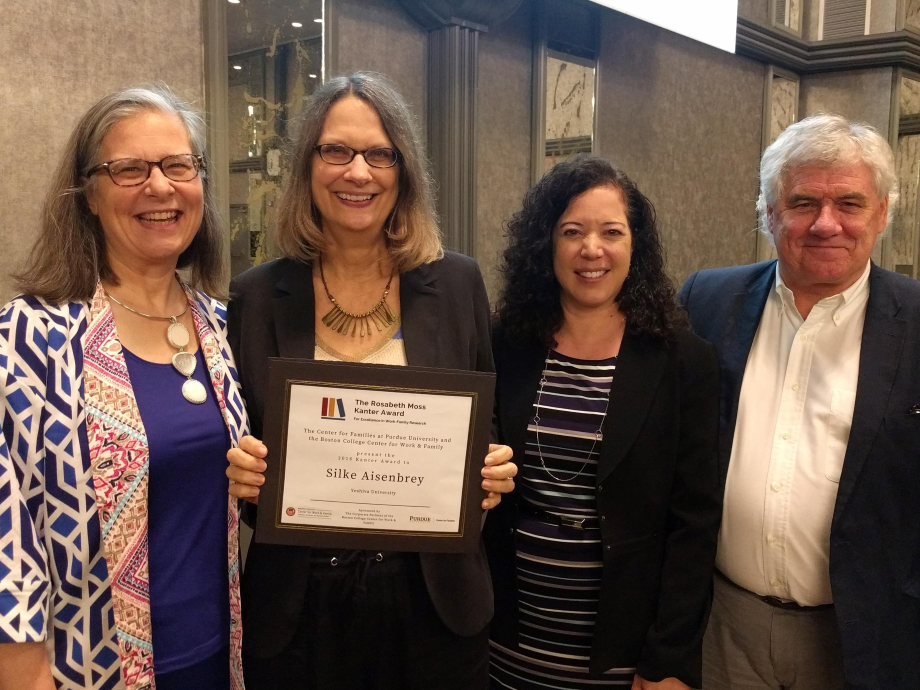
2018: Silke Aisenbrey & Anette Fasang
Aisenbrey, S., & Fasang, A. (2017). The interplay of work and family trajectories over the life course: Germany and the United States in comparison. American Journal of Sociology, 122(5), 1448-1484. https://doi.org/10.1086/691128
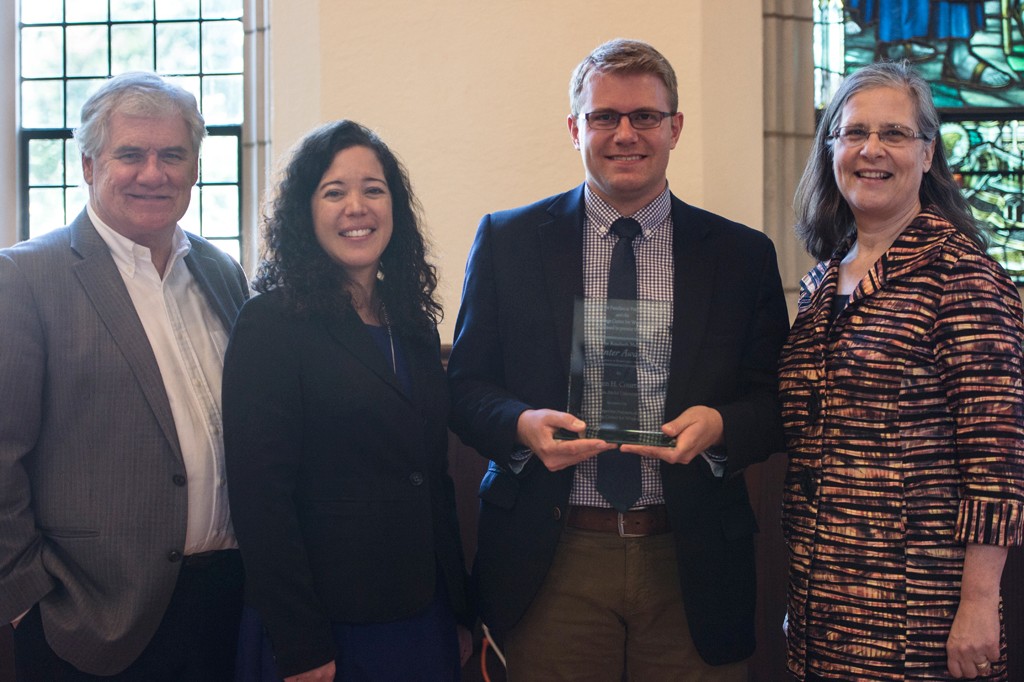
2017: Stephen H. Courtright, Richard E. Gardner, Troy A. Smith, Brian W. McCormick, and Amy E. Colbert
Courtright, S. H., Gardner, R. G., Smith, T. A., McCormick, B. W., & Colbert, A. E. (2016). My family made me do it: A cross-domain, self-regulatory perspective on antecedents to abusive supervision. Academy of Management Journal, 59, 1630-1652. http://dx.doi.org/10.5465/amj.2013.1009

2016: Markus Gangl and Andrea Ziefle
Gangl, M., & Ziefle, A. (2015). The making of a good woman: Extended parental leave entitlements and mothers’ work commitment in Germany. American Journal of Sociology, 121(2), 511-563. http://dx.doi.org/10.1086/682419
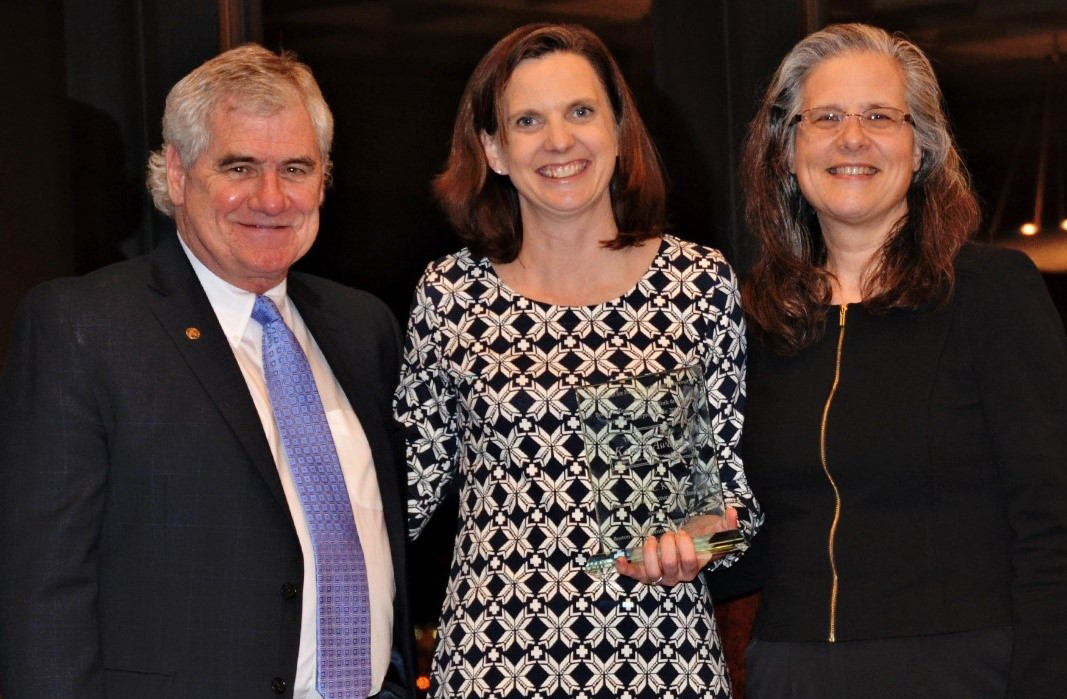
2015: Erin L. Kelly, Phyllis Moen, J. Michael Oakes, Wen Fan, Cassandra Okechukwu, Kelly D. Davis, Leslie B. Hammer, Ellen Ernst Kossek, Rosalind Berkowitz King, Ginger C. Hanson, Frank Mierzwa, and Lynne M. Casper
Kelly, E. L., et al. (2014) Changing work and work-family conflict evidence from the work, family, and health network. American Sociological Review, 79(3), 485-516. http://dx.doi.org/10.1177/0003122414531435
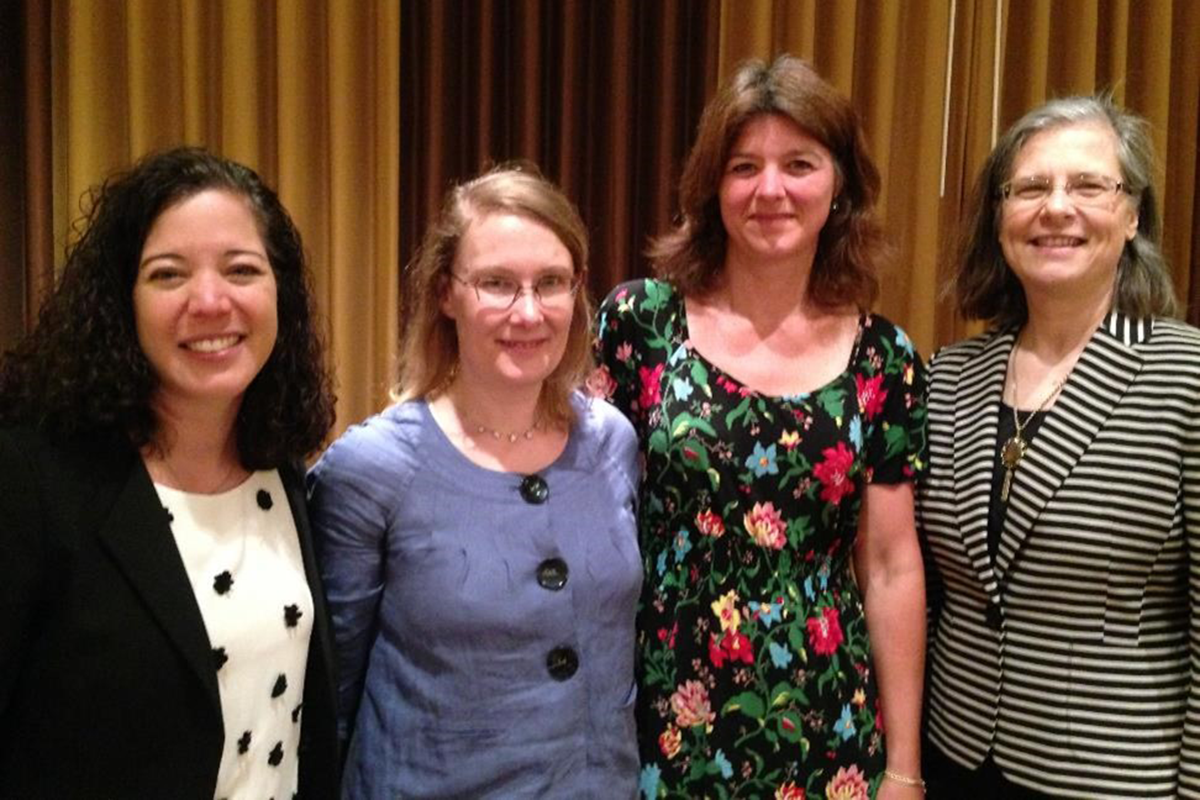
2014: Laura denDulk, Sandra Groeneveld, Ariane Ollier-Malaterre, and Monique Valcour
Den Dulk, L., Groeneveld, S., Ollier-Malaterre, A., & Valcour, M. (2013). National context in work-life research: A multi-level cross-national analysis of the adoption of workplace work-life arrangements in Europe. European Management Journal, 31(5), 478-494. http://dx.doi.org/10.1016/j.emj.2013.04.010
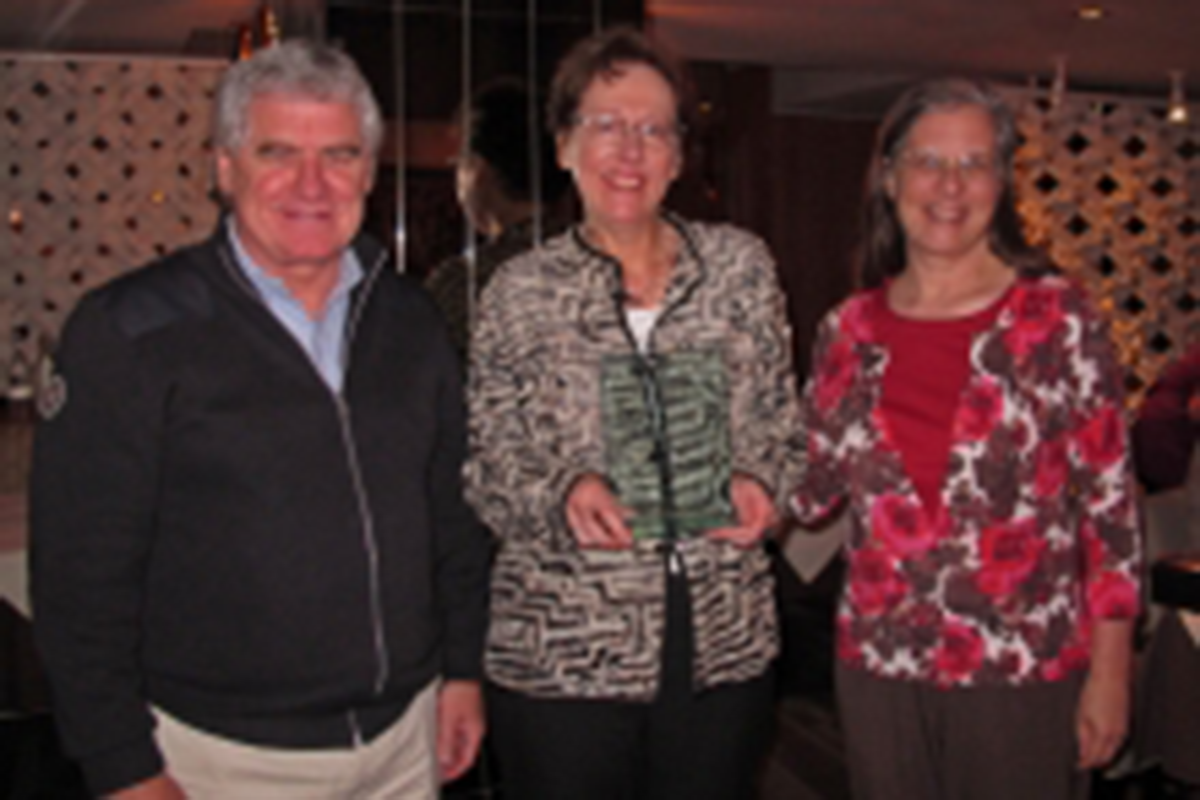
2013: Alison Konrad and Yang Yang
Konrad, A. M., & Yang, Y. (2012). Is using work–life interface benefits a career‐limiting move? An examination of women, men, lone parents, and parents with partners. Journal of Organizational Behavior, 33(8), 1095-1119. http://dx.doi.org/10.1002/job.1782
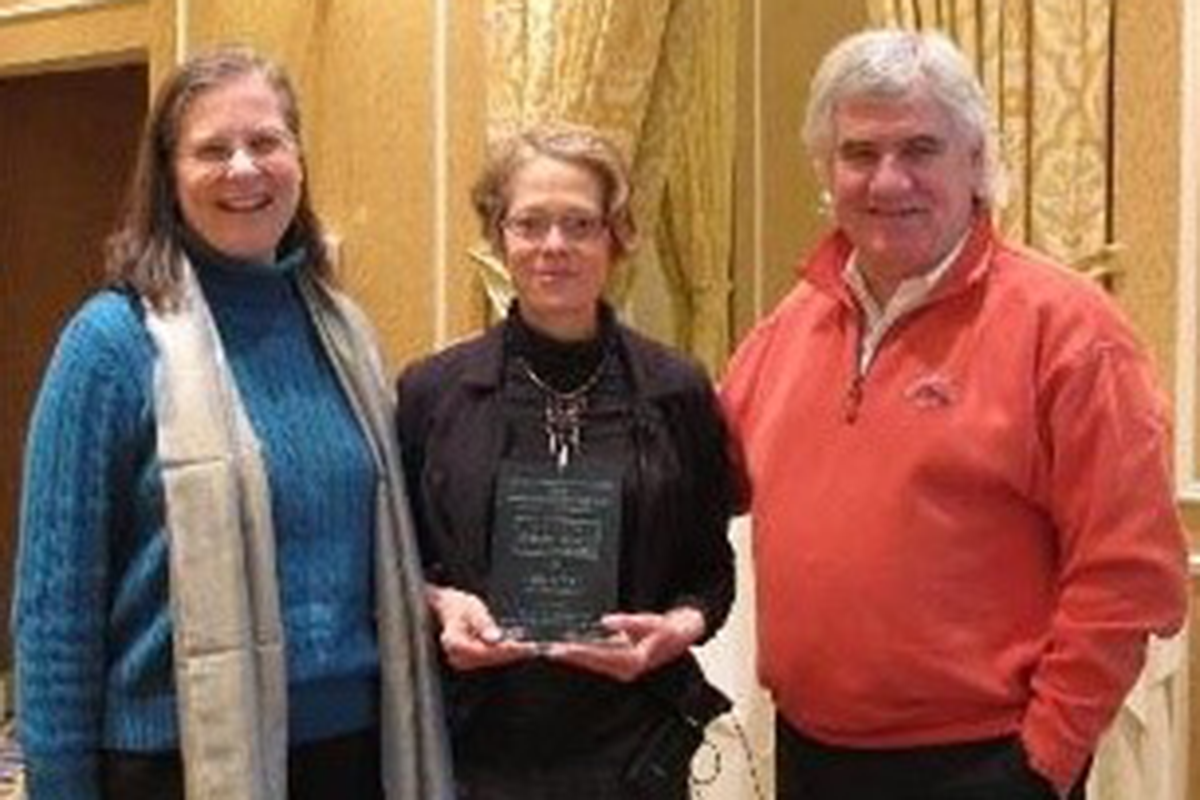
2012: Liana C. Sayer, Paula England, Paul D. Allison & Nicole Kangas
Sayer, L. C., England, P., Allison, P., & Kangas, N. (2011). She left, he left: How employment and satisfaction affect men’s and women’s decisions to leave marriages. American Journal of Sociology, 116(6), 1982. http://dx.doi.org/10.1086/658173
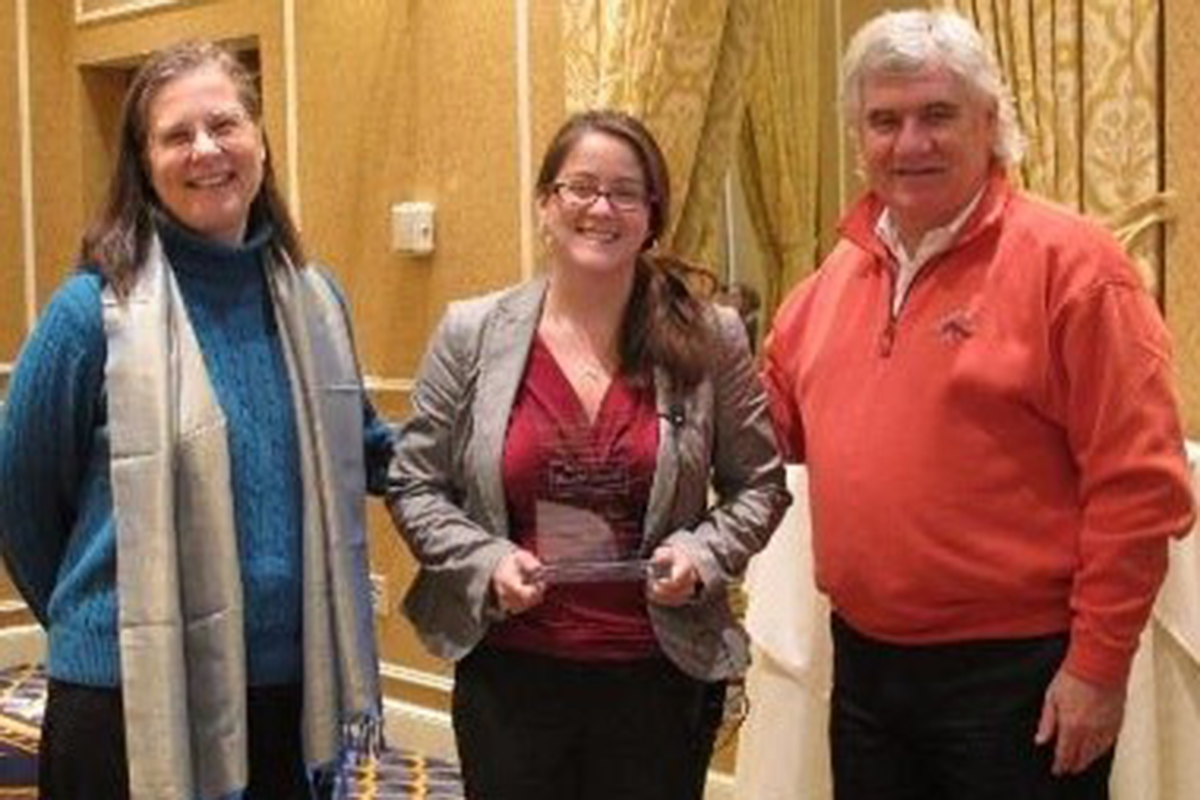
2011: Melissa J. Hodges and Michelle Budig
Hodges, M.J. & Budig, M.J. (2010). Who Gets the Daddy Bonus? : Organizational Hegemonic Masculinity and the Impact of Fatherhood on Earnings. Gender & Society, 24(6), 717-745. http://dx.doi.org/10.1177/0891243210386729
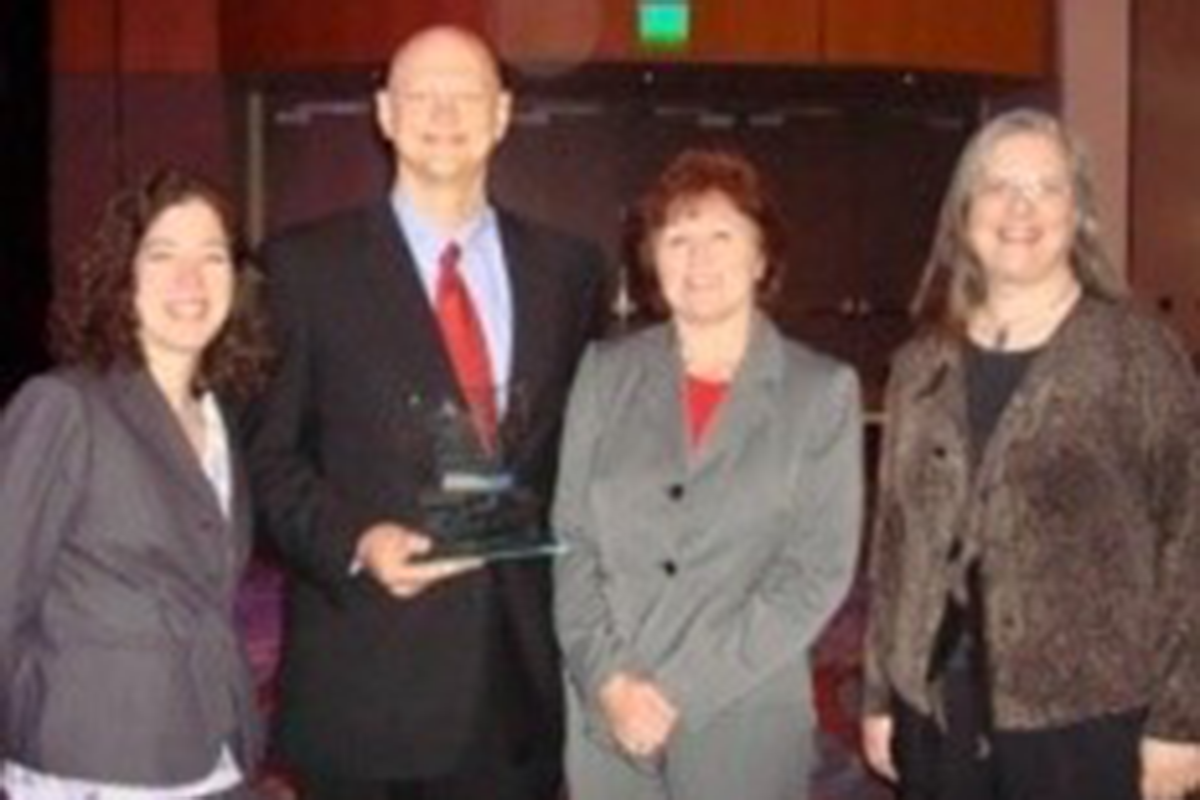
2010: Glen Kreiner, Elaine Hollensbe and Matthew Sheep
Kreiner, G., Hollensbe, E., & Sheep, M. (2009). Balancing borders and bridges: Negotiating the work-home interface via boundary work tactics. Academy of Management Journal, 52(4), 704-730. https://doi.org/10.5465/AMJ.2009.43669916
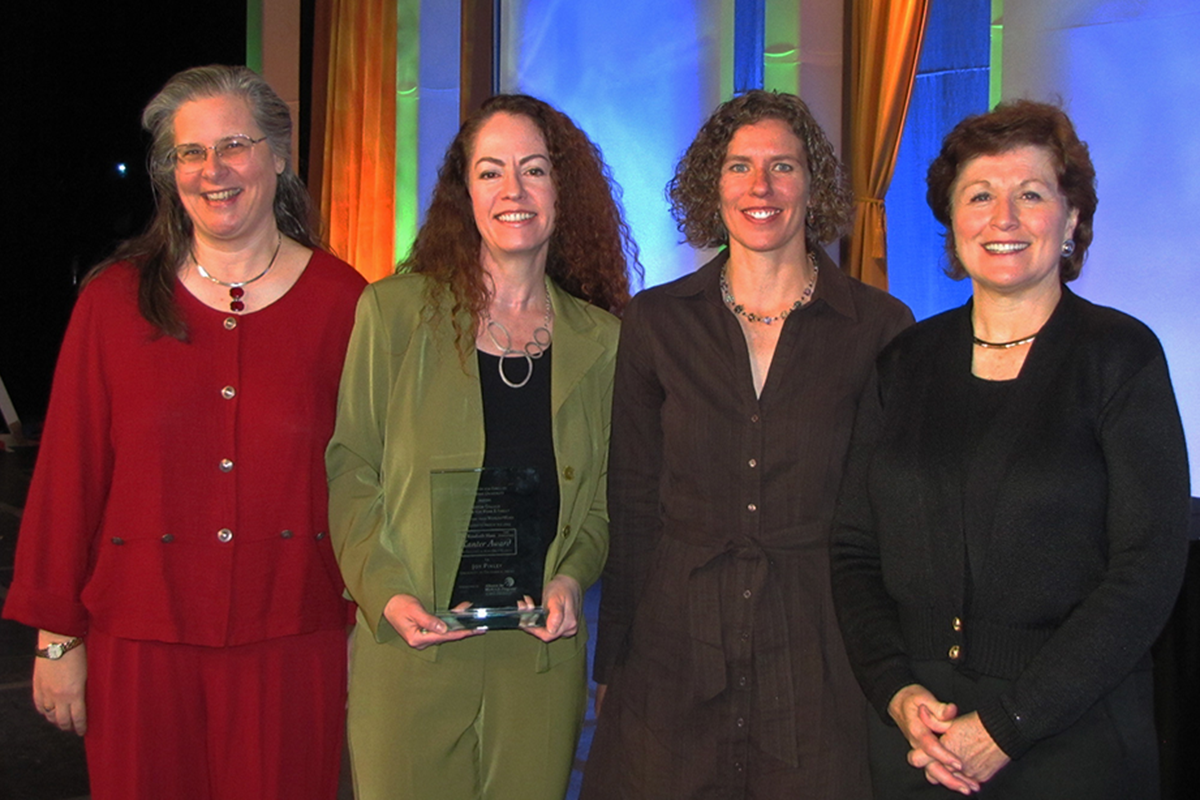
2009: Joy Pixley
Pixley, J. E. (2008). Life course patterns of career-prioritizing decisions and occupational attainment in dual-earner couples. Work and Occupations, 35(2), 127-163. https://doi.org/10.1177/0730888408315543
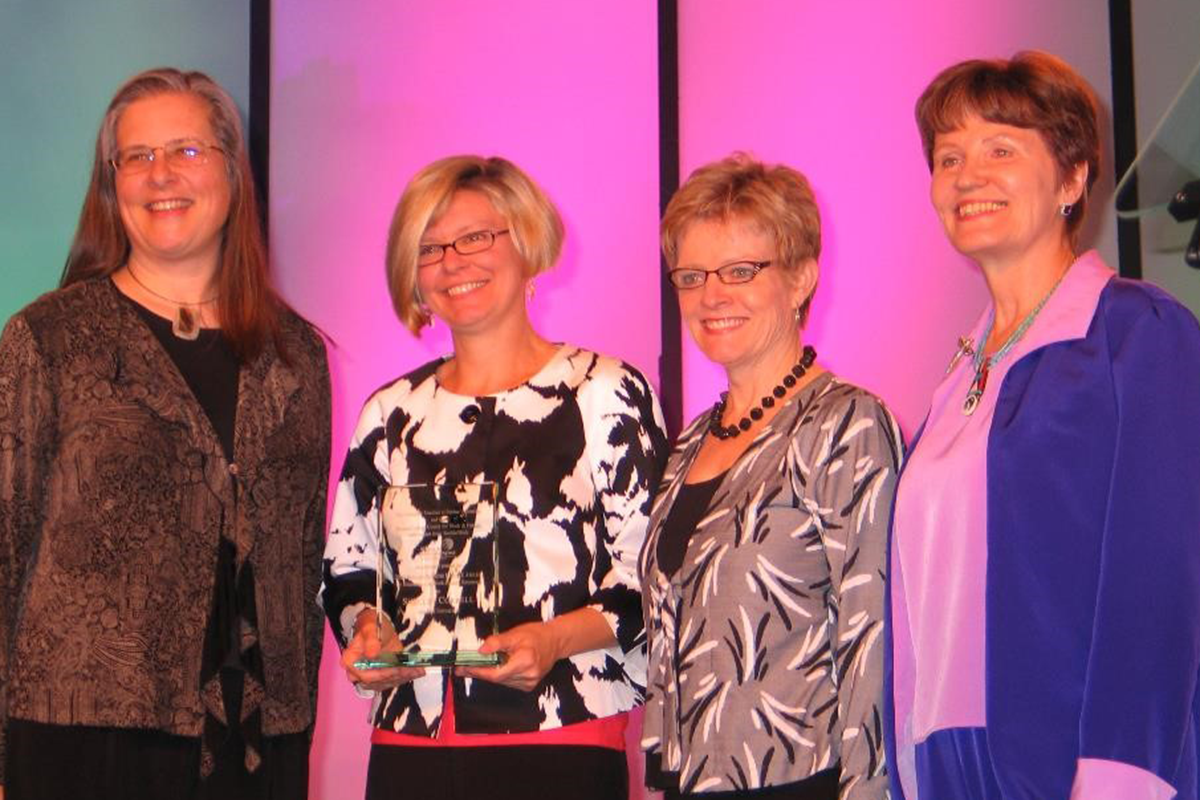
2008: Shelley J. Correll, Stephen Benard, and In Paik
Correll, S. J., Benard, S., & Paik, I. (2007). Getting a job: Is there a motherhood penalty?. American journal of sociology, 112(5), 1297-1338. https://doi.org/10.1086/511799
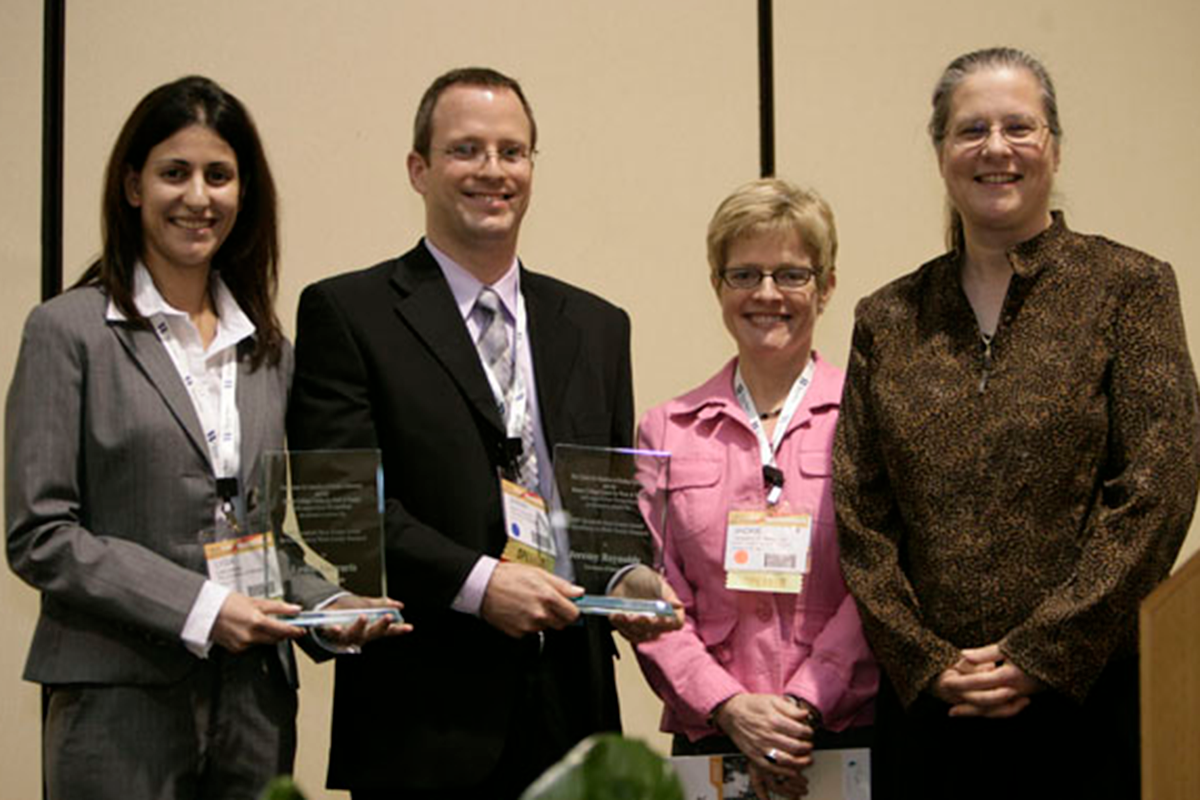
2007: Jeremy Reynolds and Lydia Aletraris
Reynolds, J., & Aletraris, L. (2006). Pursuing preferences: The creation and resolution of work hour mismatches. American Sociological Review, 71(4), 618-638. https://doi.org/10.1177/000312240607100405
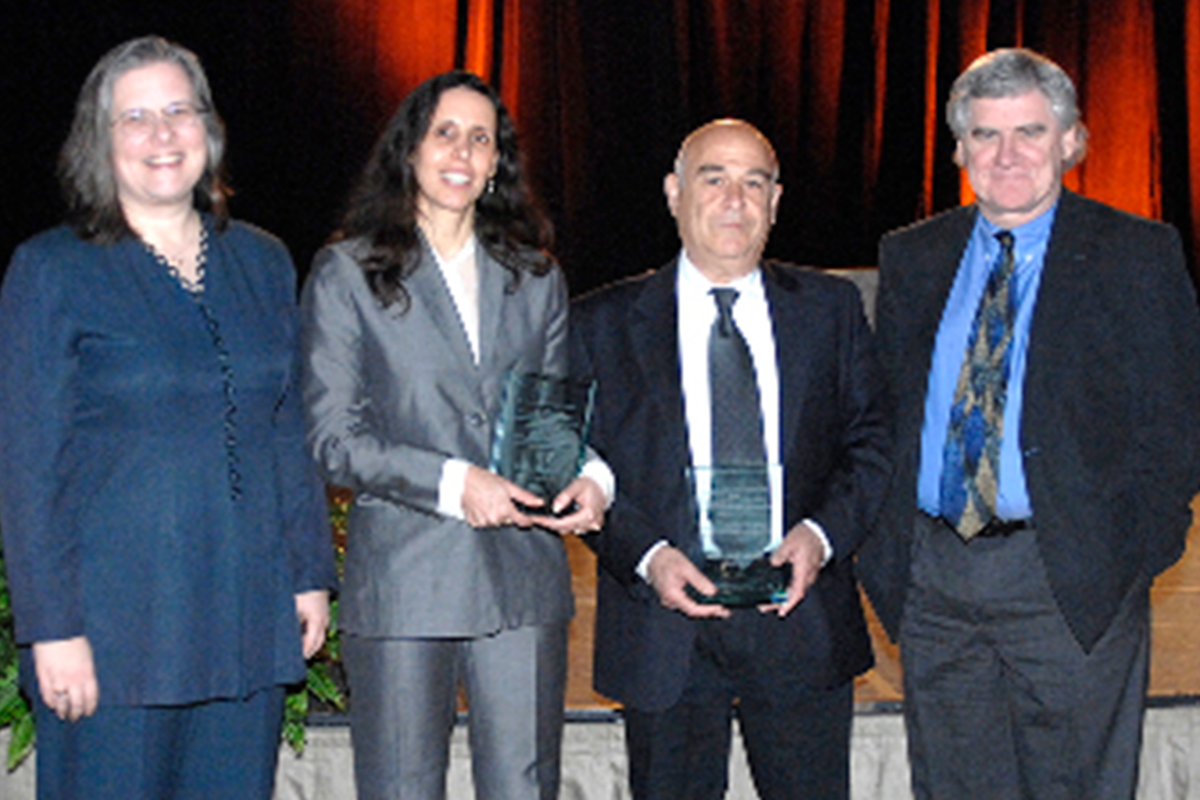
2006: Hadas Mandel and Moshe Semyonov
Mandel, H., & Semyonov, M. (2005). Family policies, wage structures, and gender gaps: Sources of earnings inequality in 20 countries. American sociological review, 70(6), 949. https://doi.org/10.1177/000312240507000604
2005: Naomi Gerstel and Natalia Sarkisian
Sarkisian, N., & Gerstel, N. (2004). Explaining the gender gap in help to parents: The importance of employment. Journal of Marriage and Family, 66(2), 431-451. https://doi.org/10.1111/j.1741-3737.2004.00030.x
2004: Marybeth Mattingly and Susan M. Bianchi
Mattingly, M. J., & Blanchi, S. M. (2003). Gender differences in the quantity and quality of free time: The US experience. Social forces, 81(3), 999-1030. https://doi.org/10.1353/sof.2003.0036
2003: Michelle J. Budig
Budig, M. J. (2002). Male advantage and the gender composition of jobs: Who rides the glass escalator? Social Problems, 49(2). 40. https://doi.org/10.1525/sp.2002.49.2.258
2002: Jerry A. Jacobs and Kathleen Gerson
Jacobs, J.A., and Gerson, K. (2001). Overworked Individuals or Overworked Families? Jacobs, J. A., & Gerson, K. (2001). Overworked individuals or overworked families? Explaining trends in work, leisure, and family time. Work and occupations, 28(1), 40-63. https://doi.org/10.1177/0730888401028001004
2001: Suzanne M. Bianchi
Bianchi, S. M. (2000). Maternal employment and time with children: Dramatic change or surprising continuity? Demography, 37(4), 401-414. https://doi.org/10.1353/dem.2000.0001
2001: Harriet B. Presser
Presser, H. B. (2000). Nonstandard work schedules and marital instability. Journal of marriage and family, 62(1), 93-110. https://doi.org/10.1111/j.1741-3737.2000.00093.x
2000: Erin Kelly and Frank Dobbin
Kelly, E., & Dobbin, F. (1999). Civil Rights Law at work: Sex discrimination and the rise of maternity leave policies. American Journal of Sociology, 105(2), 455-492. https://doi.org/10.1086/210317